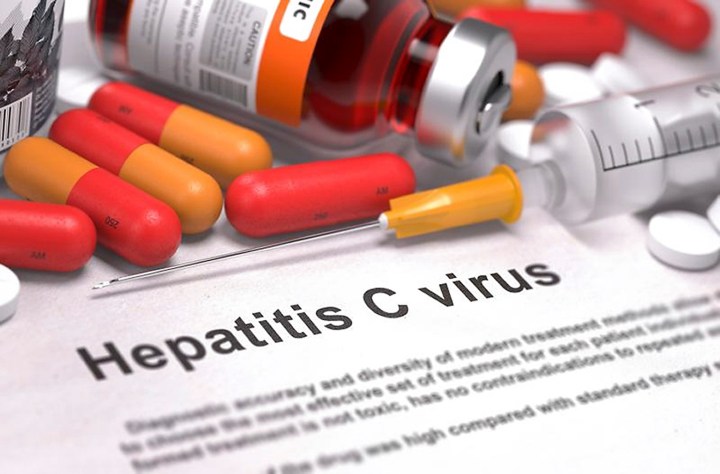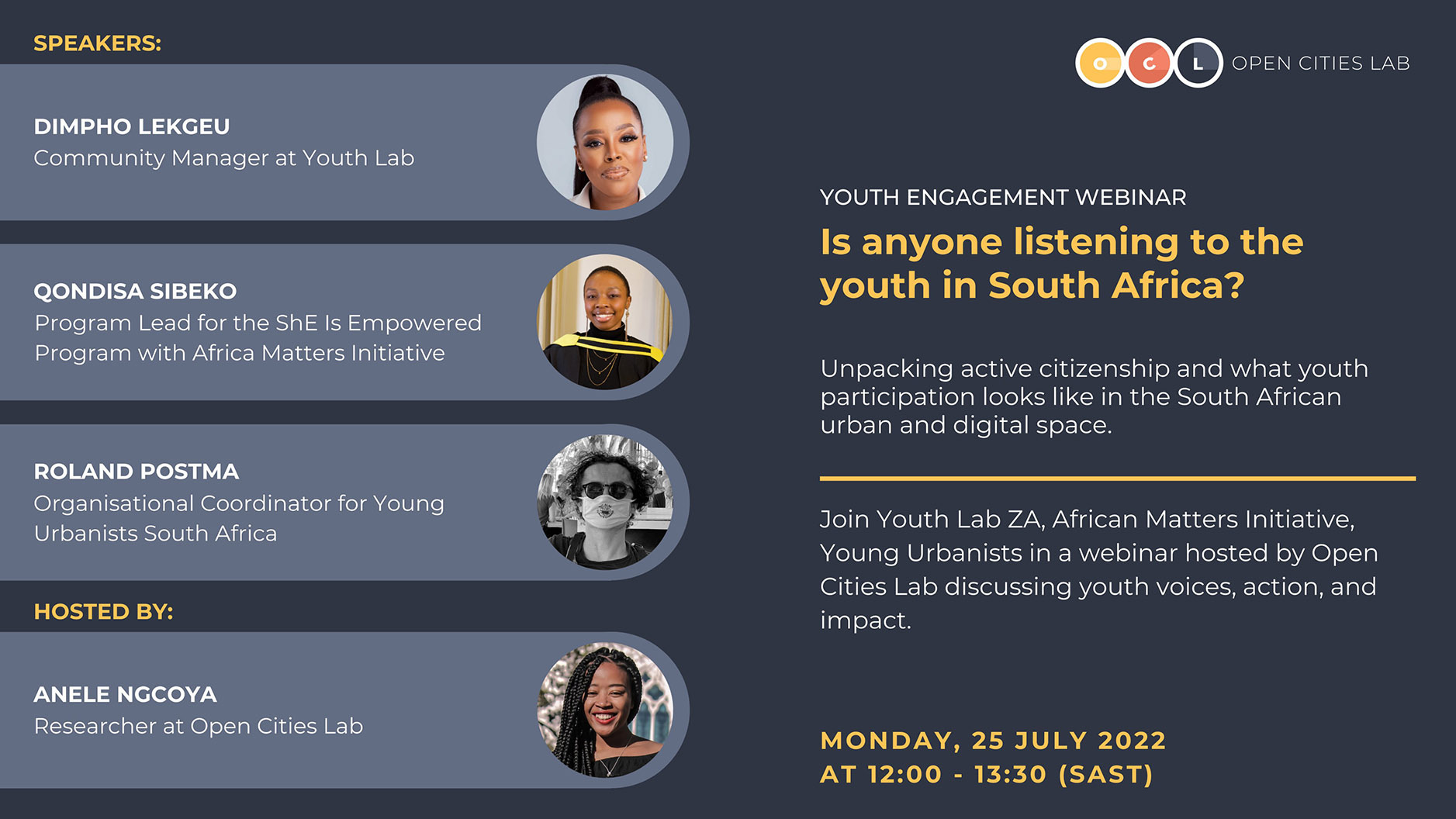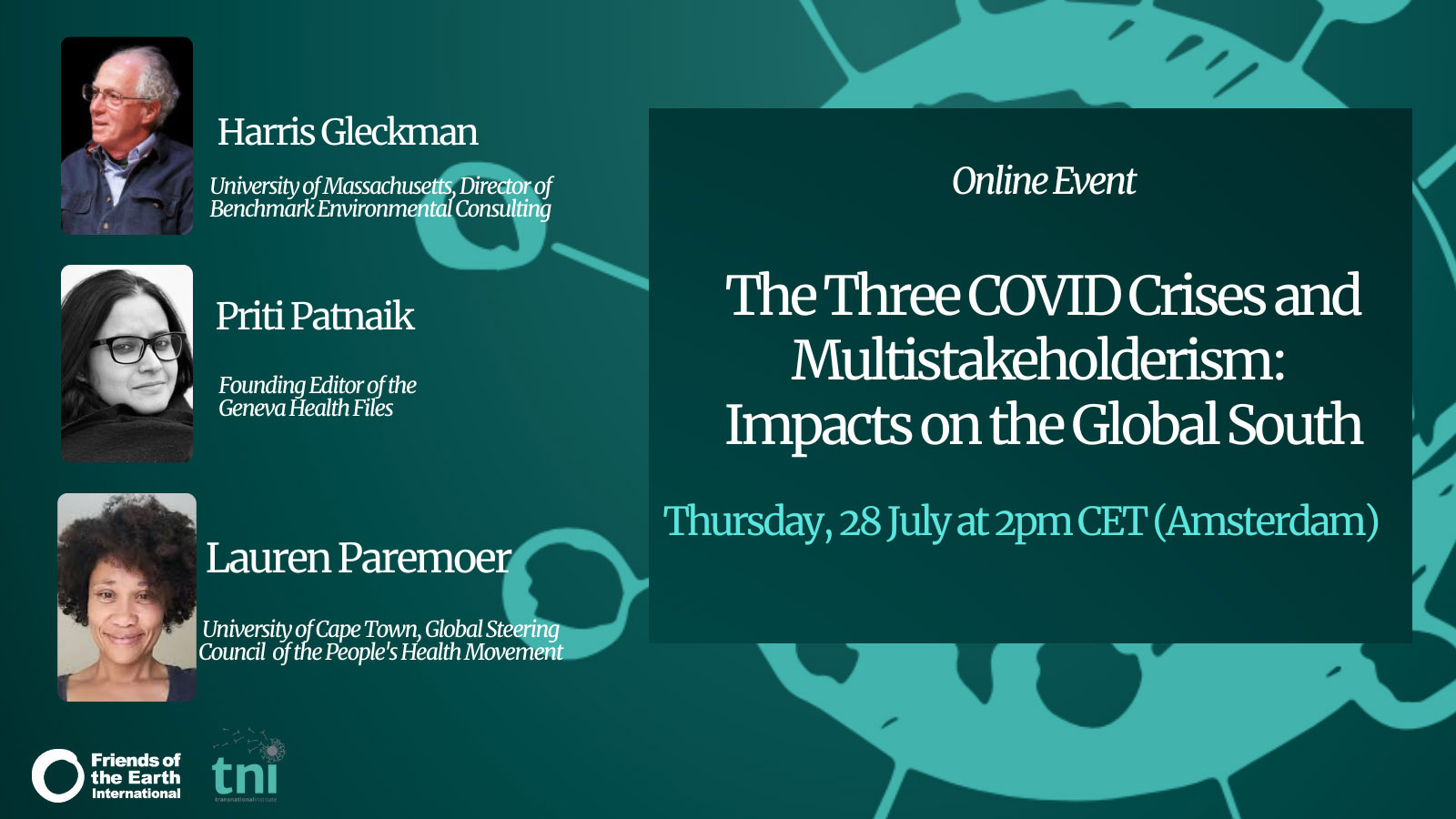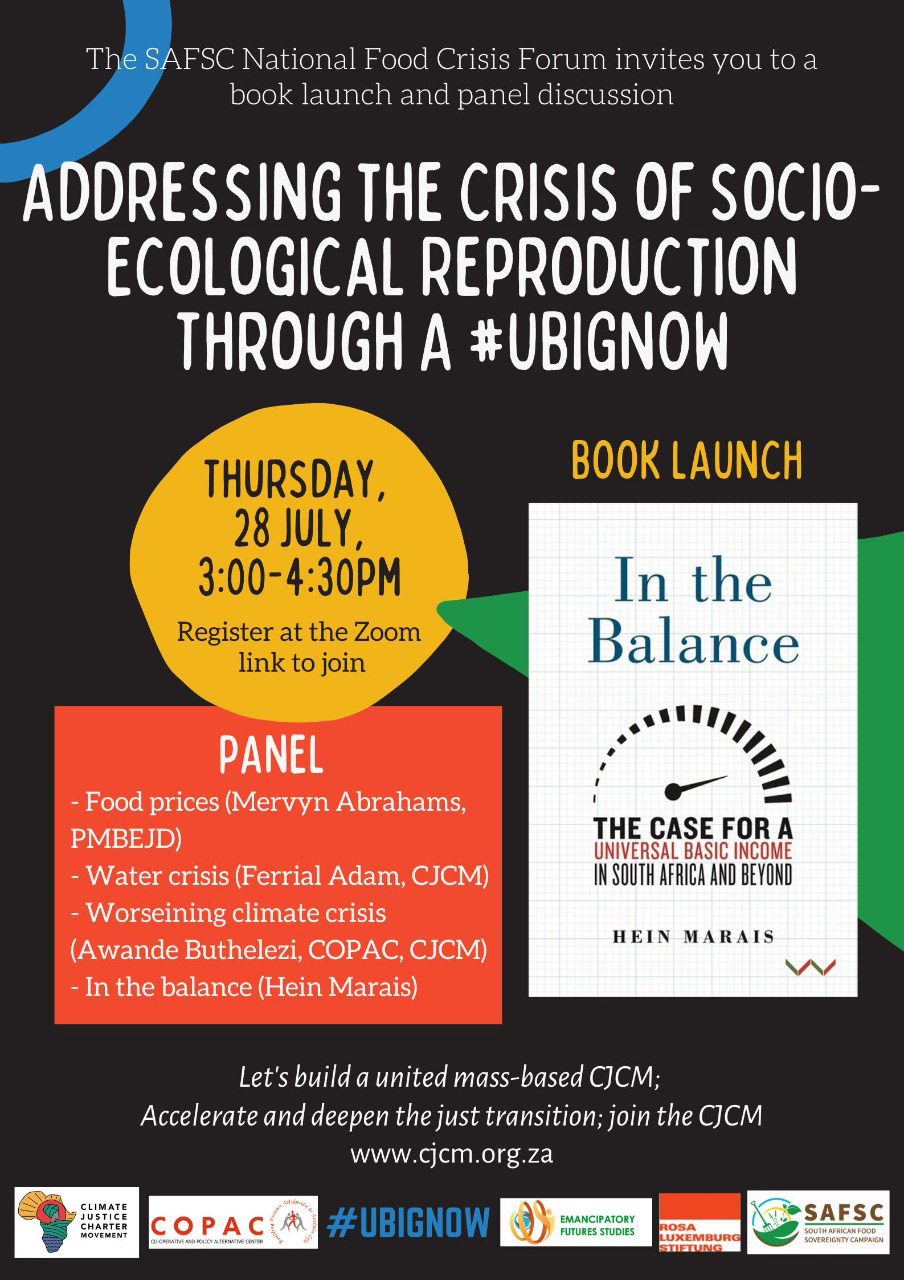CIVIL SOCIETY WATCH 25-29 JULY
This week – a social compact seminar, World Hepatitis Day and talk on special needs housing policy

A round-table discussion is taking place on initiatives needed to slow the transmission and death rate of hepatitis in Africa, and the Alternative Information and Development Centre, the Centre for Applied Legal Studies and Lawyers for Human Rights are holding a two-day indaba on the ‘UN Binding Treaty on Business and Human Rights’.
Monday, 25 July is World Drowning Prevention Day. Drowning is a leading cause of accidental death, with about 236,000 people losing their lives this way each year worldwide. It is the third-leading cause of unintentional death, according to the United Nations.
Low- and middle-income countries account for more than 90% of unintentional drowning deaths.
On Monday, at 8.30am, a group of professional health providers, government officials and people living with hepatitis began a round-table discussion on the initiatives needed t0 slow down the transmission and death rate of the disease in Africa.
“Hepatitis is a treatable disease, however the treatment is not available in South Africa at the moment, with focus on prevention of transmission, especially in key population groups who engage in high-risk behaviour,” the US says. “Join us for a 90-minute webinar ahead of World Hepatitis Day 2022, where we discover the power of storytelling and how it can be used to help advocate for better hepatitis C testing, treatment and care in South Africa and Kenya.”
Participants include award-winning South African storyteller Mathapelo Mofokeng; Dr Kgomotso Vilakazi-Nhlapo, the viral hepatitis lead in the Department of Health; Koketso Mokubane, a peer in the South African Network of People Who Use Drugs; and Dr Wamda Abuelhassan, a gastroenterologist in Johannesburg.
Register here.
On Monday at 12pm, the Open Cities Lab will host a youth engagement webinar on “Is anyone listening to the youth in South Africa?” The discussion will unpack active citizenship and the participation of young people in the South African digital and urban space.
“The youth make up a huge part of our population and have a range of different platforms on which to speak out and share their ideas. Probably more than any generation before. But is anyone listening when it comes to making policy, shaping our city spaces or creating economic opportunities?” states the event description.
The speakers include Dimpho Lekgeu, community manager at Youth Lab; Qondisa Sibeko, programme lead for the ShE Is Empowered programme at the Africa Matters Initiative; and Roland Postma, organisational coordinator for Young Urbanists South Africa.
Register here.
On Wednesday, 27 July, at 9am, the Indlulamithi Scenarios Trust, in collaboration with The GIBS Centre for Leadership and Dialogue, will present the results of the 2022 Indlulamithi Barometer and host a “Social Compact Seminar”.
The barometer is part of the Indlulamithi South Africa Scenarios 2030 project, which seeks to create national conversations around the question: “What will it take to create a socially cohesive South Africa?”
The aim of the seminar is to discuss the possibilities around co-creating and framing a new social compacting process for South Africa.
Register here.
On Wednesday at 10am, the first day of an indaba on the “UN Binding Treaty on Business and Human Rights” will begin. Hosted by the Alternative Information and Development Centre, the Centre for Applied Legal Studies and Lawyers for Human Rights, it will take place over two days.
It will “bring together activists, academics and trade unionists working towards dismantling corporate power in Southern Africa, to unpack the importance of a legally binding mechanism on business and human rights”, say the organisers.
Delegates from communities that face daily human rights violations by corporations will share their lived experiences and what remedial action they have used to challenge corporate power, “as the vast majority of these violations are said to go unpunished”.
The indaba will be held at Hotel Parktonian in Braamfontein, Johannesburg.
For more information or to RSVP, contact Busi Mtabane on 083 329 7844 or [email protected].
Thursday 28 July is World Hepatitis Day. According to the World Health Organization (WHO), this is an opportunity to “step up” national and international efforts to address hepatitis.
“The world is currently facing a new outbreak of unexplained acute hepatitis infections affecting children. WHO, together with scientists and policymakers in affected countries, are working to understand the cause of this infection that does not appear to belong to any of the known five types of hepatitis viruses: A,B,C,D, and E,” the organisation said.
This year, the focus is on “bringing hepatitis care closer to the primary health facilities and communities”, so that people have better access to treatment and care for the disease.
“WHO aims to achieve hepatitis elimination by 2030.”
On Thursday, at 10am, the Africa Criminal Justice Reform is launching a report on “Covid-19 restrictions and the impact on criminal justice and human rights – findings from five African countries”. The countries in question are Kenya, Malawi, Mozambique, South Africa and Zambia.
“Following previous reports published by Africa Criminal Justice Reform (ACJR) in 2021 focusing on states’ responses to the pandemic in Kenya, Malawi, Mozambique, South Africa and Zambia, ACJR, together with in-country partners, undertook further investigations to describe and analyse the impact of Covid-19 restrictions on criminal justice and human rights,” according to the event description.
“The reports make a number of overview observations dealing with broader issues of governance, human rights, the socioeconomic impact of the pandemic and the criminal justice system.”
The facilitator of the launch discussion is Lukas Muntingh of the ACJR. Among those speaking at the event are Janelle Mangwanda of the ACJR; Victor Mhango of the Centre for Human Rights Education, Advice and Assistance; Rumbidzai Mutasa of the Ubuntu Justice Initiative; and Lenson Njogu of the Legal Resources Foundation Trust in Kenya.
Register here.
At 11am on Thursday, the Konrad-Adenauer-Stiftung will host a discussion on “Anti-Migrant Sentiment in South Africa”.
“On the 21st June, Yeoville Market went up in flames in a suspected xenophobic attack. Since the xenophobic attacks of 2008, which claimed the lives of 62 people, there have been sporadic attacks on foreigners and foreign-owned shops in South Africa,” says the event description.
“Out of the 62 people who were killed in 2008, 21 were South Africans, though the attacks were motivated by xenophobia. Xenophobia does not only affect foreigners, it affects society as a whole.”
The speakers at the event are Tawanda Matema, project manager at Konrad-Adenauer-Stiftung; Busi Ntini, monitoring and evaluation officer at the South African Council of Churches; and Lily Hlope, project manager at the DDP Migration Project.
Register here.
On Thursday at 12pm, the Socio-Economic Rights Project at the Dullah Omar Institute, University of the Western Cape, will host a webinar on “Special Needs Housing Policy: Progress and Status”.
The panellists include Liesel du Plessis, senior project manager at the Project Preparation Trust; advocate Monwabisi Nkohla, director of programme development at the Department of Human Settlements; and Yuri Ramkissoon of the South Africa Human Rights Commission.
Register for the webinar here.
At 2pm on Thursday, Friends of the Earth International and the Transnational Institute will launch the report, “The Three Covid crises and Multistakeholderism: Impacts on the Global South”, by Dr Harris Gleckman.
Gleckman explores the role of multistakeholderism in the Covid-19 crises, when “multistakeholder initiatives, working outside the multilateral system, acted as governing bodies”.
Speakers at the event include Dr Lauren Paremoer of the University of Cape Town People’s Health Movement; Priti Patnaik of Geneva Health Files; and Gleckman, who is a senior fellow at the Center for Governance and Sustainability at the University of Massachusetts, Boston.
Register here.
On Thursday at 3pm, the South African Food Sovereignty Campaign’s National Food Crisis Forum is hosting the launch of Hein Marais’s new book, In the Balance: The Case for a Universal Basic Income in South Africa and Beyond.
The launch will involve a discussion on “Addressing the Crisis of Socio-Ecological Reproduction Through A #UBIGNOW”. Panellists include Mervyn Abrahams of the Pietermaritzburg Economic Justice and Dignity Group; Ferrial Adam of the Climate Justice Charter Movement; and Awande Buthelezi of the Climate Justice Charter Movement.
Register here.
On Thursday at 4pm, the Equal Education Law Centre will celebrate its 10th anniversary by hosting the inaugural “Arthur Chaskalson Memorial Lecture”. The keynote address will be delivered by advocate Tembeka Ngcukaitobi SC, who will be speaking on the rule of law in times of political crisis.
There will also be a question-and-answer session with advocate Geoff Budlender SC, Tshego Phala and Nomzamo Zondo.
The venue is the Centre For The Book, Victoria Street, Cape Town, and the event will also be live-streamed.
RSVP here.
On Friday, 29 July, at 3pm, the Ahmed Kathrada Foundation is hosting a webinar on “The state of racism in South African schools: Towards a culture of anti-racism”.
The speakers include Professor Jonathan Jansen, distinguished professor of education at Stellenbosch University; Matakanye Matakanye, general secretary at the National Association of School Governing Bodies; and school principal Naazim Adam.
Register here. DM/MC
"Information pertaining to Covid-19, vaccines, how to control the spread of the virus and potential treatments is ever-changing. Under the South African Disaster Management Act Regulation 11(5)(c) it is prohibited to publish information through any medium with the intention to deceive people on government measures to address COVID-19. We are therefore disabling the comment section on this article in order to protect both the commenting member and ourselves from potential liability. Should you have additional information that you think we should know, please email [email protected]"









